第48章 To the Sea(2)
These repeated disclosures that disclosed nothing lulled us at last into a happy unconsciousness of end in this subterranean passage to a lower world. Though we were cleaving the mountain chain in part against the grain, indeed because we were, it showed no sign of giving out; until without premonition a curve shot us out at the foot of a village perched so perpendicularly on terraces that it almost overhung the stream. It was called Nishinoto, and consisted of a street that sidled up between the dwellings in a more than alpine way. Up it we climbed aerially to a teahouse for lunch; but not before I had directed the boatmen to discharge the smuggled goods.
In another hour we were under way again less the uninvited bales, which, left sitting all alone on the sands, mutely reproached us till they could be seen no more. At the first bend the gorge closed round about us as rugged as ever. The rapids were not so dangerous as those above, but the stream was still fast if less furious. When we looked at the water we did not appear to be moving at all, and when we looked up again at the bank we almost lost our balance for the sudden start.
Then gradually a change crept over the face of things. The stream grew a thought more steady, the canon a shade less wild. We passed through some more rapids,--our last, the boatmen said. The river began to widen, the mountains standing more respectfully apart.
They let us see nothing new, but they showed us more of themselves, and grand buttresses they made. Then the reaches grew longer, and other hills less high became visible ahead. By all signs we were come to the beginning of the end. Another turn, and we were confronted with a real view,--a very hilly view, to be sure, but one that belonged to the world of man.
It was like coming out of a tunnel into the light.
The current hurried us on. At each bend the hills in front rose less wild than at the bend before. Villages began to dot the shores, and the river spread out and took its ease. Another curve, and we no longer saw hills and rocks ahead. A great plain stretched before us, over which our eyes wandered at will. Looking back, we marked the mountains already closing up in line. I tried to place the river's gap, but the barrier had grown continuous to the eye. Like adventurers in a fairy tale, the opening through which we had come had closed unrecognizably behind us.
In front all was plain, every-day plain, with people tilling it, and hamlets; and in the immediate foreground, right athwart our course, a ferryboat full of folk. As we bore down between it and the landing place two men gesticulated at us from the bank. We swerved in toward them. They shouted something to the boatmen, and Yejiro turned to me. The wayfarers asked if we would let them go with us to the sea.
There was no regular conveyance, and they much desired to reach the Tokaido that night. What would I do?
"Oh! Very well," said I, reluctantly, "take them on board."So it had come to this, after our romantic solitary voyage! We were to end as a common carrier, after all. One is born a demigod, the French say, to die a grocer.
Our passengers were honest and businesslike. Soon after coming aboard they offered to pay for their passage, an offer I politely declined. Then they fell to chatting with Yejiro, and I doubt not in five minutes had possessed themselves of all our immediate history.
Meanwhile, the river was lazily dropping us down to the sea. On the left, at a respectful distance, a long, low rise, like a bit of fortification, ran down indefinitely in the same direction, by way of encouraging the stream. Pitiable supposition! Was this meadow-meandering bit of water indeed our wild Tenriugawa! It seemed impossible. Once we had a bathetic bit of excitement over a near case of grounding, where the water had spread itself out to ripple down to a lower level. This was all to recall the past. The stream had grown steady and profitable. More than once we passed craft jarringly mercantile, and even some highly respectable automations, water-wheel boats anchored in the current, nose to tail, in a long line, apparently paddling up stream, but never advancing an inch.
And all these sights had a work-a-day, machine look like middle age.
The afternoon aged to match. The sun began to dip behind the distant hills; and then toward the east, in front of us, came out the long outline of the Tokaido bridge, three quarters of a mile in length, like a huge caterpillar crawling methodically across the river-bed.
Gradually we drew toward it, till its myriad legs glinted in the sunset glow; and then, as we swept under, it wheeled round to become instantly a gaunt stalking silhouette against the sky. From below by the river's mouth the roar of the surf came forebodingly up out of the ashen east. But in the west was still a glory, and as I turned to it I seemed to look down the long vista of the journey to western Noto by the sea. I thought how I had pictured it to myself before starting, and then how little the facts had fitted the fancy. It had lost and gained; if no longer maiden, it was mine, and the glamour that fringes the future had but changed to the glamour that gilds the past. Distance had brought it all back again. Delays, discomforts, difficulties, disappeared, and its memory rose as lovely as the sky past which I looked. For the better part of place or person is the thought it leaves behind.
End